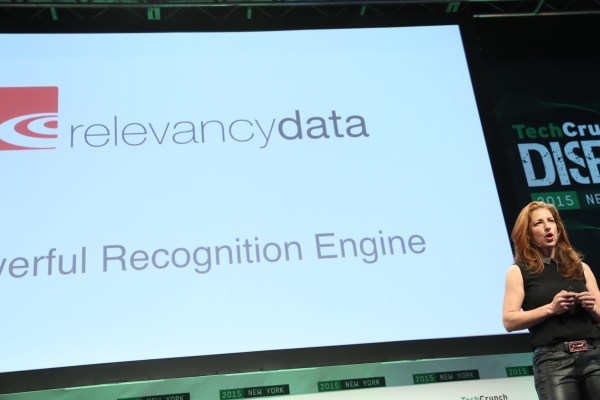I bet we’ve all had moments when we’ve stared at a random, irrelevant ad and wondered: “Why the heck am I being forced to watch this?” Well, a company called Relevancy Data is working to make those moments a thing of the past, and it’s taking the stage today as part of the Startup Battlefield at Disrupt NY.
The mission, said founder and CEO Michal Hubschmann, is to “organize the world of video content by indexing every element of the video to create endless engagement.”
Here’s the basic idea: In addition to targeting video ads based on clicks and other behavioral data, Relevancy Data also allows advertisers and publishers to use the content of the videos you’re actually watching. It sounds like an obvious solution, but analyzing those videos isn’t easy, particularly when it comes to user-generated content, where the publisher doesn’t automatically know what the video is about and can’t rely on tags or other metadata.
[gallery ids="1154747,1154746,1154745,1154744,1154743,1154742,1154741,1154740,1154739,1154738,1154737,1154736,1154735,1154734"]
Hubschmann acknowledged that existing ad targeting tools are bringing in plenty of money, but she suggested that users are getting more annoyed — hence the growth of ad blockers. And there are competitors trying to analyze video content for better ad targeting, including DynAdmics and Vu Digital, but Hubschmann said Relevancy Data’s technology is more comprehensive.
“It’s not about face recognition or image recognition,” she said. “It’s a combination of all the technologies under one umbrella: face, logo, elements, age, gender, emotion and audio.”
To highlight the problem, Hubschmann showed an ad for a Venus shaving blade playing before a football game — basically, an irrelevant ad. Then she showed off the technology, playing a video and identifying the faces, the logos and other elements.
The business model involves selling this data to media and ad tech companies to improve their user profiles and therefore their targeting. This also offers a new approach to targeting in the cookie-less world of mobile ads, Hubschmann said.
And she said the company works closely with the content providers: “In this industry, the publisher is king. If the publisher says, ‘I want you to use this technology because the performance will be higher,’ that’s an immediate sale for us.”
Before Relevancy Data, Hubschmann founded hotel website EasyToBook.com, while her technology director Aviram Siboni has done work with face, voice and speech recognition, including a stint with Israel’s General Security Service. Advisors include Mascha Driessen, Microsoft’s regional director of advertising and online in Western Europe.
Relevancy Data was incubated at Startup Bootcamp Amsterdam and has launched in Europe. However, Hubschmann said she’s looking to expand in the United States.
In the meantime, she’s releasing her first set of campaign results from Fox Sports in the Netherlands. By using Relevancy Data, Fox Sports apparently saw a 3.7 percent clickthrough rate, compared to a standard CTR of less than 1 percent — in other words, the campaign was more than three times as effective.
Q&A With Judges
Q: Tell me about the AI model that does the recognition.
Siboni: “All the IP is inside.” In other words, all of the technology was developed in-house. Relevancy Data downloads the video from the content provider, analyzes it with several engines and sends the results to the company’s ad server. The end result identifies who the celebrity is, or what the music or logo is, in each specific second.
Q: YouTube is the “gorilla” in the video market, and Google must be doing things in this area. How might you partner with YouTube?
Hubschmann: The company will pursue two parallel directions. One is to implement this with publishers like YouTube. The other is to offer Relevancy Data’s own campaign management tools for advertisers.
Q: How do you differentiate yourself from competitors?
Siboni: “It’s all about execution and performance.” Since the technology was all developed in-house, it can be customized and improved in different ways and for different categories.
Hubschmann: The key is to “show the value of this data and translate it into a huge amount of value.” That’s why Relevancy Data is focused on working with market leaders like Fox Sports and BMW.
